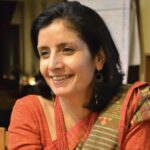Dear Reader,
This is Cheryl White and Jane Hales writing together. We hope you are well!
We have big news.
This edition of International Journal of Narrative Therapy and Community Work brings with it a new format, which includes not only formally reviewed papers but also interviews, video and audio contributions, and reviews. This set up also enables the journal to be interactive. You can now easily leave comments about papers and enter into a dialogue with authors and therefore foster a greater sense of intellectual community.
Significantly, from this day onwards, the journal is also going to be Open Access, so all freely available! This is possible because the journal is now to be hosted by Dulwich Centre Foundation.
The journal has always moved with the times, and we believe this format makes the most sense for the contemporary field. We’re really looking forward to it. We are also going to be actively publishing pieces by young and emerging narrative practitioners, and of course we will continue to ensure that we publish papers, videos and audio files from a great diversity of contexts and cultures.
Things have come a long way since Jane was typesetting Dulwich Centre Newsletter on a typewriter! It’s almost 40 years since we started working together! Seeing this journal start as a one-page newssheet to now becoming an international online multimedia production is quite something.
There are other changes too. After 40 years, I (Cheryl) have decided it’s the right time for a new editor. I will still be involved as Editorial Consultant, but I am very delighted to announce that the new editor will Shelja Sen. Shelja is a feminist narrative family therapist and author based in Delhi, India, and it feels just perfect that she is now going to be the Editor-in-Chief. She is terrific and we are so happy.
And after almost 40 years of typesetting, design, proofreading, liaison and journal management, I (Jane), have decided it’s the right time to pass most of these tasks to others! I will still be involved in proofreading – I am perhaps the only person in the world who has read every word of every Dulwich Centre publication!
For those readers who have been engaged with this journal since the beginning, we want to thank you for your support and interest in narrative practice. And to the next generation of readers, listeners, viewers and authors, we very much look forward to seeing how you continue to stretch the field and develop diverse forms of narrative practice.
International Journal of Narrative Therapy and Community Work is a feminist-informed publication, and it’s always been a place where we announce new projects and initiatives. It gives us great pleasure to announce here the first Dulwich Centre Fellowship! Tiffany Sostar from Calgary, Canada, is being awarded this fellowship in relation to their projects on narrative responses in support of trans lives. More information about this will be included in the next issue!
This Fellowship sits alongside the two Chairs of Feminisms, Intersectionality and Narrative Practice here at Dulwich Centre, currently held by Tileah Drahm-Butler and Sekneh Hamoud Beckett.
We hope this issue and the new format of International Journal of Narrative Therapy and Community Work support your work with individuals, families and communities who are struggling. That was the hope when the first Dulwich Centre newssheet was typed up and posted out in 1983 and remains the hope 40 years on.
Warmly,
Cheryl White & Jane Hales
Kaurna Country, Australia
Editorial by Shelja Sen
Dear Reader,
A metaphor that came to me as I read and watched and listened to the rich offerings of this issue of the journal is a web. The stories here offer ways to connect us across time, ages, themes, continents, histories, colour, bodies, genders, sexuality and so much more.
I am writing from New Delhi, but through engaging with the stories told in this issue, my life connects in some way with the lives of others in diverse contexts. This includes the lives of young people and children.
Early on in this issue we are given a vantage point to view collaborative conversations on safety with young people using the migration of identity metaphor in a paper by Clare Kempton Sladden. Deborah Mrema shares how we can nurture spaces to respectfully honour stories of pride and survival in fostering healing possibilities for children using the Tree of Life, and Luke Kalaf brings to us the gamification of narrative therapy, in which elevation of side quests can invite subversive anti-colonial adventures.
In further peer-reviewed papers, Nicolás Mosso Tupper offers cross-cultural partnerships that challenge narrow definitions of masculinity and open new and diverse ways of being a man. Barry Sullivan questions individualistic and capitalist discourses of productivity that promote ageist ideas.
We are also introduced to how AI (artificial intelligence) can be used creatively in therapy. It is fascinating to listen to Andrea Ng’s audio practice note on the use of AI in generating stories that heal. As we ponder on how technology can enrich our practice, we have an old gem from the archives – “My favourite questions” by Jill Freedman, being read out in an audio recording by Esther Benz – reminding us how our questions can invite people to link their lives with others through shared purposes and how we are all in it together. This paper is so significant as we find our way out of the pandemic.
Vijaya Teelock’s interview with David Denborough on seeking truth, justice and reconciliation in Mauritius – where there is a history of indentured labour and slavery – is poignant as it explores how we can memorialise and democratise history in ways that are participative and not separate from our present lives. Zan Maeder’s interview of Perry Zurn is fascinating and so important for narrative practitioners to reflect on the politics of curiosity and how reclamation takes constant work from people who are marginalised as the world is constantly trying to erase their right to know. As Perry puts it, “Curiosity can be revolutionary. It can prompt us to imagine a different way of being in the world for ourselves and for one another”.
This idea links so well with Gipsy Hosking’s video on disability politics and invisible illnesses and how we shape discourse as well as being shaped by it. This issue also includes a video by Sabine Vermeire, recorded as a message to Turkish colleagues after the earthquake there. Sabine takes us on a journey of playful seriousness and serious playfulness to foster experiences of agency, belonging and coherence when children have experienced loss and suffering.
David Newman’s review of the documentary film Addicted to Life reflects on the urgency, complexity and tenderness of the Belgium athlete Marieke Vervoort’s decision to end her life via euthanasia as a form of defiance or refusal of biopower, and at the same time explores how people’s lives cannot be reduced to their final act.
All these are exquisite stories of pain, despair, loss, survival, healing, responses to injustice, reconciliation, reparation and reclamation. Stories that make a difference and as Aunty Barbara Wingard put it, being told in ways that make us stronger. In all of them, there is a spirit of adventure, a legacy that has been passed across generations of narrative practitioners. As Cheryl White passes on this legacy to me after 40 years of editorship,
I am honoured and committed to sustaining it until it is ready to be passed on to the next generation in an ever-growing and evolving web of life that spans time, generations, regions, languages and cultural contexts.
In solidarity,
Shelja Sen
New Delhi, India
 Shelja Sen is narrative therapist, writer and co-founder of Children First, New Delhi. Her latest book is Reclaim Your Life and she is also a columnist with a national newspaper, Indian Express. Shelja has worked as a narrative practitioner and teacher for over 20 years in various contexts in the UK and India. She is an international faculty member at Dulwich Centre Foundation, Adelaide, and a clinical tutor at The University of Melbourne, Australia. Shelja is a curator of the unique skills, expertise and know-how of the children, young people and families she has the honour of working with, and is committed to building innovative, culturally aligned, ethical practices using a feminist intersectional lens.
Shelja Sen is narrative therapist, writer and co-founder of Children First, New Delhi. Her latest book is Reclaim Your Life and she is also a columnist with a national newspaper, Indian Express. Shelja has worked as a narrative practitioner and teacher for over 20 years in various contexts in the UK and India. She is an international faculty member at Dulwich Centre Foundation, Adelaide, and a clinical tutor at The University of Melbourne, Australia. Shelja is a curator of the unique skills, expertise and know-how of the children, young people and families she has the honour of working with, and is committed to building innovative, culturally aligned, ethical practices using a feminist intersectional lens.
White, C., Hales, J., & Sen, S. (2023). Editorial. International Journal of Narrative Therapy and Community Work, (1), i–iv. http://doi.org/10.4320/RCFM2157


